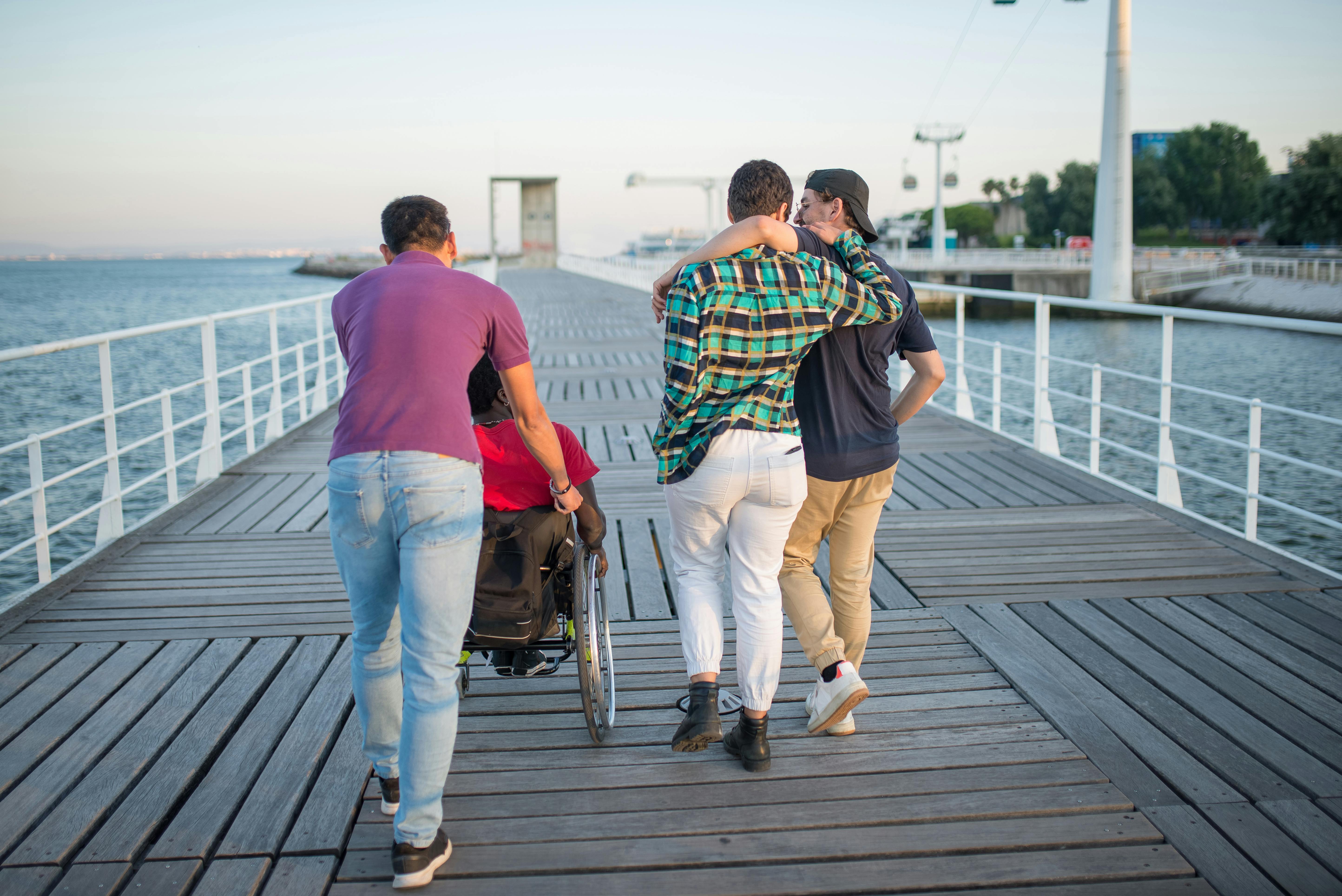Introduction
Imagine standing at the airport, suitcase in hand, excitement bubbling up alongside the familiar flutter of nerves. For people with physical disabilities, travel can be both thrilling and challenging, a blend of freedom and careful planning.
adaptive travel opens doors to new adventures but also asks us to navigate unique obstacles with grace and preparation. Whether you’re a parent planning a family trip, an adult exploring life post-diagnosis, or a caregiver supporting a loved one, having trusted adaptive travel tips can turn daunting journeys into joyful memories.
This guide offers heartfelt insight and practical advice on adaptive travel for people with physical disabilities, because every journey deserves to be empowering, accessible, and filled with hope.
Understanding the Experience
Beyond Barriers: The Realities of adaptive travel
Traveling with a physical disability can mean anxieties that others rarely consider, the weight of packing medical supplies, finding accessible accommodations, or fearing inaccessible transport. Yet, these challenges don’t define the experience.
Take Rachel, a mother of a son who uses a wheelchair. Before their trip, she worried endlessly about hotel bathrooms and curb cuts. But with research, adaptive aids, and patience, the trip became a transformative experience, full of laughter and warmth. The sights, the sounds, even the smell of ocean air, these sensory moments illuminated their journey in a way she hadn’t imagined possible.
adaptive travel means balancing practical needs with the joy of discover acknowledging the frustrations and the triumphs, the fatigue and the exhilaration.
Emotional + Social Impact
Traveling with physical disabilities often goes beyond logistics; it deeply shapes emotional wellbeing and family dynamics. Feelings of vulnerability or uncertainty can arise, sometimes shadowed by stigma or misconceptions from others.
Parents and carers may worry about exhaustion for their loved ones or themselves. Adults may wrestle with independence versus necessary assistance. These feelings are real, valid, and shared among many.
Top 5 Ways to Cope and Support:
- Prepare extensively, but allow flexibility for unexpected changes
- Communicate needs clearly with travel and accommodation staff ahead of time
- Practice self-care and rest, even short breaks recharge energy
- Build a travel support team of family, friends, or professional aides
- Use mindfulness and sensory tools (like noise-canceling headphones or weighted blankets) to stay grounded
Practical Guidance for adaptive travel
Planning is the foundation of accessible travel. These actionable tips will help make your trip smoother:
Research Your Destination Thoroughly: Confirm accessibility of hotels, restaurants, transportation, and attractions. Look for wheelchair ramps, accessible bathrooms, and service animal accommodations.
Pack Smart and Light: Include all essential medical supplies and equipment, but consider renting or borrowing mobility devices at your destination to reduce luggage weight and hassle.
Arrange Transportation in Advance: Contact airlines and transport providers ahead to book specialized services like wheelchair assistance, priority boarding, or accessible taxis.
Use Technology to Stay Organized: Tools like the My Special Needs app can help track medications, therapy sessions, and travel schedules, reducing stress and ensuring no detail is missed.
Prepare a Sensory Comfort Kit: Include items such as earplugs, sunglasses, fidget toys, or weighted blankets to help manage sensory overload during travel.
Know Your Rights: Familiarize yourself with international disability laws and airline policies to advocate effectively for accommodations.
Real Connection & Community
Travel is richer when shared with community. Organizations dedicated to accessible travel offer support, resources, and even adaptive tours designed for physical disabilities. Parents, adults, and caregivers can benefit immensely by connecting with peers who understand the unique travel challenges and joys they face.
Every shared story brings new ideas and encouragement; each network welcomes you with understanding and warmth. Remember, you are part of a vibrant community that celebrates mobility, independence, and adventure on everyone’s terms.
Conclusion
Travel is a gateway to possibility and joy, no matter your physical abilities. With thoughtful planning, practical tools, emotional support, and community connection, adaptive travel can transform from a challenge into cherished memories. Let this guide be your companion on that journey.
Download the My Special Needs app to stay supported and connected, for free. Because care should feel human, not clinical. Download My Special Needs today, and find calm, connection, and community, one day at a time.


